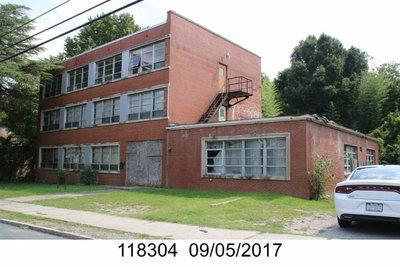By Ashleigh Fields
Special To The Tribune
DURHAM – Harriet Tubman, a historical figure best known for her leadership in the Underground Railroad abolitionist movement, has served as the namesake of the Harriet YWCA for over half a century. The site in Durham was once a lively gathering place crucial to meetings about activism and community investments built in 1953, however the building has been vacant for the past 30 years.
In 2019, Reinvestment Partners purchased the space with intentions to bring it back to life.
“We will renovate the property to preserve the community history, stabilize the neighborhood, and provide affordable housing. Once revitalized, the building will fulfill its original mission of serving its community,” the organization shared in an online statement.
Its goal will be uplifted through a grant received this year from the National Park Historic Preservation Fund for African American Civil Rights. The Harriet YWCA is one of 39 projects in 16 states, in addition to the District of Columbia.
“Grant programs like this help us empower communities to preserve their stories and their history. It is a priority for the interior department and the administration to invest in efforts that tell a more complete story of our nation’s history, including African American history,” Jenny Anzelmo-Sarles, chief spokesperson at the National Parks Service told The Tribune in an exclusive interview. “The National Park Service is committed to telling the fullest story of America that we can because history is not always triumphant and heroic, right? And so we learned so much, so much from these painful and shameful chapters in our history.”
Anzelmo-Sarles emphasized the power of place when it comes to telling stories and explaining historical events to the youth.
“Every year the National Park Service gets to give about a billion dollars in grants to communities across the nation. Many of those are for outdoor recreation, but just as many are for historic preservation projects like these,” she continued.
The Harriet YWCA was chosen because it meets National Park Service qualifying criteria which assess urgency, feasibility, sustainability and a connection to Black history. These standards ensure sites can maintain essential funding to preserve history that’s often overlooked and underfunded like Black Wall Street in Tulsa, Oklahoma; African American Recreational Tourism; the Negro Motorist Green Book in Michigan; or the Louis Armstrong house in New York.
This year marks the program’s return after three years.
“Congress had not authorized us to fund the grants in those years. The African American civil rights grant program began in 2016, and the good news is since then the National Park Service has provided over $126 million through this program to document, preserve and recognize the places and stories associated with the struggle for civil rights,” Anzelmo-Sarles said.
She encourages other groups that showcase Black artifacts or provide local tours to apply for grant funding which closes in the fall. Those who are interested should visit https://www.nps.gov/subjects/historicpreservationfund/african-american-civil-rights.htm.

